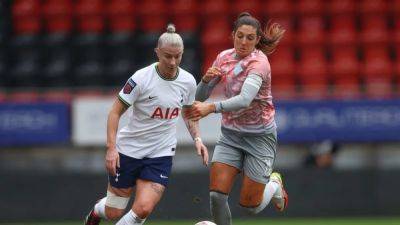FA has burned bridges in England player release row and will pay a price
The club v country row between the Football Association and Women’s Super League sides may be resolved, but what does it say about the development of the women’s game and what damage has been done?
It is just over six weeks since the European Club Association criticised attempts by national federations to sidestep the 10 July mandatory release date for players before the Women’s World Cup, while acknowledging that that date, set by Fifa, was inadequate.
It is just over three weeks since Fifa and the ECA agreed a non-mandatory release period of 23-29 June, a compromise that took into account club desires for players to have a post-season break and the needs of national teams to ensure match readiness and preparation.
Except the FA had its plans in place: for players to work on independent development programmes from 12-16 June before being called up to a first prep camp from 19-23 June, a second from 26 June-1 July and to fly to Australia for a third from 7-17 July. It has been a plan long in the making and was informed by preparations for last summer’s Euros that were hugely effective, where training camps were punctured by time off with friends and families. It was also informed by England’s performance staff, who had mapped out what was too much time off versus too little.
The problem was that although the FA communicated the dates informally to players and club managers as far back as November, clubs were not formally consulted and had not agreed to it.
There was naivety from the FA. In talks it argued it had done things the way they had always been done. But with the game increasingly professional, the interests of clubs and national teams were inevitably going to come into conflict, and it had not got clubs on





